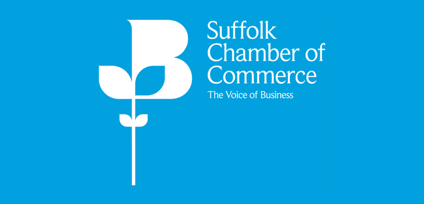Suffolk businesses: first signs of improvement in activity, but inflation and interest rate worries mount

Suffolk Chamber of Commerce’s Quarterly Economic Survey (QES) for the first three months of the year has recorded a welcome boost in some of the measures recorded, especially for service companies, although manufacturers in the county continue to face a more complex trading environment.
Service companies recorded quarter-on-quarter improvements in domestic sales (up by 11 percentage points) and orders (up by 23 percentage points) with more firms now reporting increases than those recording decreases. Similar movements were recorded with regards to export sales (up by seven percentage points) and orders (up by 18 percentage points).
Manufacturers also recorded significant quarter-on-quarter export boosts, with both sales and orders up by 49 percentage points – unlike the rest of the East of England. However, UK sales and orders took a hit, with declines of 17 and eight percentage points respectively.
There were very slight improvements in all firms’ cashflow situation (up by one percentage across both business categories), although balances still remain in negative territory with slightly more firms reporting declines than increases (-3% for manufacturers and -7% for service companies).
Investment in both plant, machinery and training also bounced back to an extent from the lows recorded in the last quarter of 2022, although supporting anecdotal evidence suggests this recovery remains fragile with investment budgets under continuing pressure.
Most significantly, two key confidence measures rebounded significantly over the three months in question, also having fallen to new lows in the previous quarter.
Confidence levels in improving turnover were up by 66 percentage points for manufacturers and 30 percentage points for service firms, driving both into overall positive territory (+48% for manufacturers and +30% for services).
Confidence in improving future profitability was boosted by 43 percentage points for manufacturers and 30 percentage points, although the overall balances for both remain, slightly, in negative territory (-3% and -4% respectively.
Recruitment indices suggest that companies’ job creation plans and challenges in filling vacancies have come off their recent historically high levels, although most firms continue to experience considerable difficulties filling vacancies.
Worries about the negative impact of inflation remain entrenched and, in fact, have grown higher over the last three months. 89% of Suffolk respondents listed price increases as a worry (up from 82% in the previous quarter).
The impact of the year-long increases in interest rates by the Bank of England, after a decade of historically low levels, continues to be a significant factor of concern. being referenced by 52% (up from 47%).
Paul Simon, head of public affairs & strategic communications at Suffolk Chamber commented: “Whether this is the end of the beginning or the beginning of the end of the business community’s recent challenging times remains to be seen.
“There are certainly glimmers of hope in the Suffolk data: a reflection of the determination of business leaders and their workforces to battle on into some very challenging economic headwinds – some international in origin, others very much due to national policy decisions.
“As previously, Suffolk Chamber will use the insights from this survey to push for monetary and fiscal policies that reward risk-taking and sustainable growth and for key mobile, rail and specific road infrastructure projects, especially along the A14 Growth Corridor, that helps encourage long-term business investment, improves access to markets and contributes to our county’s net zero ambitions.”
Suffolk Chamber is grateful to Suffolk Knowledge, part of Suffolk County Council, for providing the analysis of this QES.

